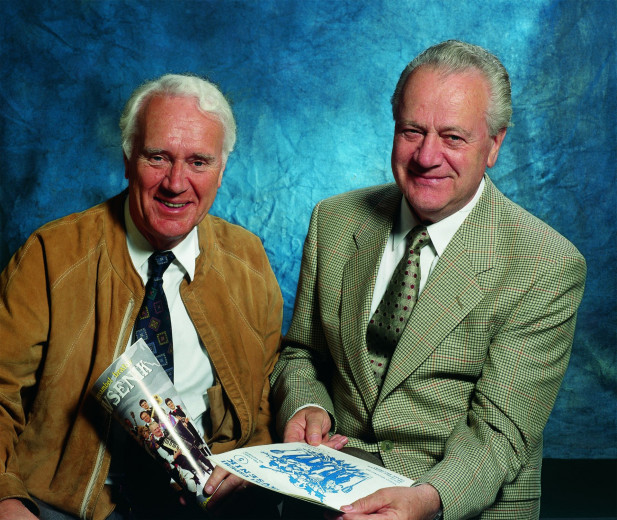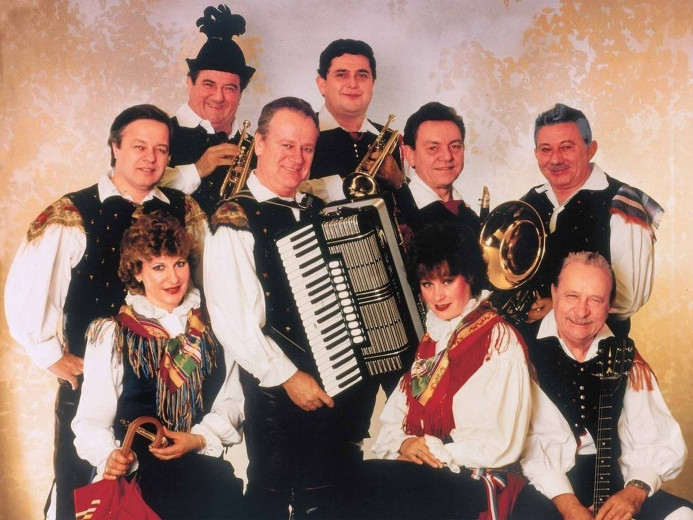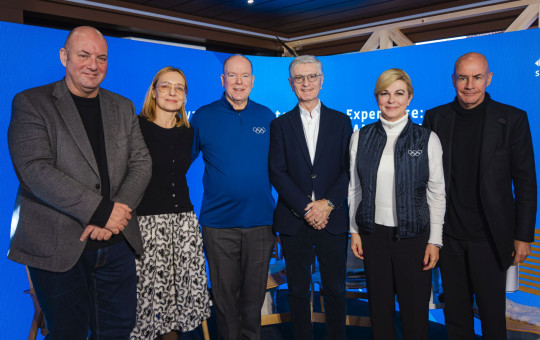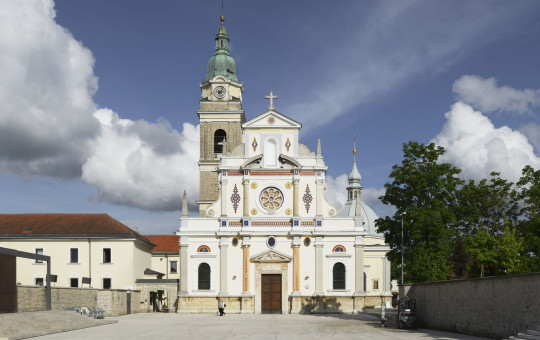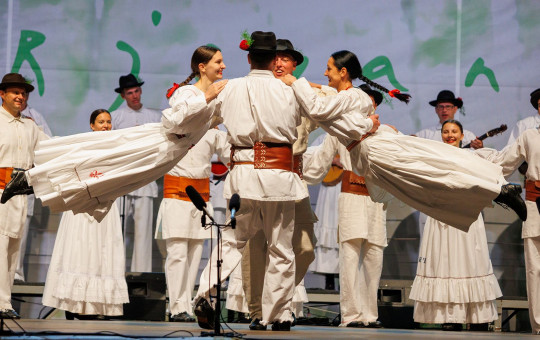Date: 4. October 2019
Time to read: 5 min
Popular folk music is the music that attracts the largest crowds in Slovenia. This musical genre became so popular thanks to numerous Slovene ensembles, among which Avseniki and the Lojze Slak Ensemble stand out. Many of their songs have already become folk tunes and reached the highest level of song.
The melodies of Slavko Avsenik are undoubtedly the cultural heritage not only of Slovenia, but also of Europe and the whole world.
The national anthem "Zdravljica" (composed in 1905) and Avsenik’s polka "Na Golici" (Trumpet echoes) can be considered as two sacred songs, two works of art representing our national character.
The king of Slovene music has been giving away his great inner richness to his audience from his early days until his last breath, and has left a golden heritage to all Slovene musicians, on which they will be able to draw for centuries. The brothers Avsenik, Slavko and Vilko, represent the most performed and the best sold authors of popular folk music in Europe. They wrote more than 1,000 songs, among which "Na Golici", that has been reworked as many as 600 times and is the most played instrumental piece of music in the world and also the most famous. Avseniki took their music from the Gorenjska region to the most prestige and largest concert halls and as far as the Berlin Philharmonic. They can pride themselves with more than 10,000 imitators and 150 fan clubs of Avsenik music. The Avsenik Brothers Ensemble sold 33 million records, performed over 10,000 concerts and, in 40 years of their performance, received 31 gold, one platinum and one diamond record.
Musician of the people
As a composer, Slavko Avsenik knew how to look inside the heart and write those feelings into a melody. Although he did not have any formal musical education, nor could he read musical notes and so wrote down the melodies in his own way with lines and dots, he was an exceptional composer. In tandem with brother Vilko, who completed a musical conservatory education and also understood Slavko's writing, they were a unique musical team that knew how to touch joy, happiness, sadness, natural beauty, of the mountains and jewels of Slovenia with their music. At the same time, he paid attention to his listeners and, when they performed, made notes of the kind of impression their playing left. He has often mentioned that he was merely observing his audience and played to them that to which they had responded.
"The nation decides who is interesting and who is not. Once you are at the top, only one thing applies: you have to remain interesting, i.e. such that people will still want you.
The motto of Avseniki was: to be honest, work, create, go on tours and listen to your listeners.
I felt with the people. I was observing them and we only played what the listeners responded to. On my musical path I have always been adjusting to the taste of audience and, if I have managed to please the entire audience, I was also pleased with myself."
One of the biggest achievements of the Avsenik Ensemble is the song "Na Golici" (Trompeten-Echo in the German version) which was declared the most played instrumental piece of music in the world over the last century by the German royalty collection agency GEMA in 2003.
Many other songs, written and played by the Avsenik brothers have already become folk tunes, while numerous other performers play their adaptations which are a part of their regular repertoire. At the sixtieth anniversary of the Avsenik Ensemble, their music was entered into the Slovene immaterial, i.e. spiritual cultural inheritance as a special phenomenon.
Genuine and unique
Avseniki and Begunje in the Gorenjska region are also interesting to those accidental tourists not familiar with popular folk music. The song "Na Golici" proved to be a universal hit every time.
Avseniki are one real authentic, genuine and unique thing we have in Slovenia. Nobody else has a polka king.
The ensemble was formed in 1953 by the brothers Slavko, who played the accordion and wrote the music, and Vilko, who arranged the music for the ensemble. The band started as a trio which soon grew into a quartet and into the Gorenjski quintet in 1955, which was later renamed as the Avsenik Brothers Quintet. They produced music with an accordion, clarinet, trumpet, guitar, baritone and bass, while a full sound was added by a vocal duet or trio. It is believed that Avseniki were the pioneers of a new music genre in Central Europe, while their quality in this field is indisputable. They were very popular in Austria, Germany and basically everywhere else in the world; in the German speaking arena, the ensemble was known under the name of the Oberkrainer Quintett and, after numerous Slovene popular folk music groups presented themselves in this arena, as the Original Oberkrainer.

